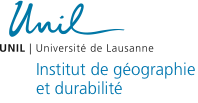Institute of Geography and Sustainability of the University of Lausanne
Research projects
Fire regimes and ecosystem services in African biodiversity hotspots: can fire policies favoring climate change mitigation, biodiversity and local communities converge?
| Research fields |
Political ecologies |
| Keywords |
Grassy biomes Madagascar Mozambique South Africa Livelihoods Carbon Historical ecology Flexbility |
| Funding | Swiss Network for International Studies (SNIS) |
| Duration | July 2022 - December 2024 |
| Website | https://snis.ch/projects/fire-regimes-and-ecosystem-services-in-african-biodiversity-hotspots-can-fire-policies-favoring-climate-change-mitigation-biodiversity-and-local-communities-converge/ |
| Researchers |
Kull Christian (Project coordinator) [web] [email] Walters Gretchen (Project co-coordinator) [web] [email] Fernandez Garcia Victor (Project co-coordinator) [email] |
Wildfires largely impact climate, biodiversity and ecosystem services relevant for local communities. Thus, international cooperation, multidisciplinary and multistakeholder approaches are necessary to acknowledge fire benefits and damages, as well as to develop management policies essential for the achievement of several of the UN Sustainable Development Goals (SDGs), including no poverty, zero hunger, clean water, health and well-being, climate action, and life on land. In this context, the continent of Africa accounts for more than 70% of the area burned annually in the world, generating a CO2 amount equivalent to the 14% of global emissions from fossil fuels. A large proportion of these burned area concentrate in the open vegetation biomes (grasslands and savannahs) of biodiversity hotspots, shaping their ecosystem composition. Moreover, in these regions fire has a large societal component, sometimes conflictive, as rural populations use it as a tool to manage natural resources, while government policies tend to suppress or control the use of fire. With these premises, we aim to investigate how different fire regimes affect carbon dynamics, plant diversity and nature's benefits to people in the fire-prone open biomes of the Madagascar and Maputaland-Pondoland-Albany biodiversity hotspots, in order to identify the best-balanced fire- management policies. This objective will be addressed from a multidisciplinary approach by using demographic, social, economic, remotely sensed, phytological and edaphic information obtained from databases, satellite imagery, field sampling, and interviews in cultural landscapes and in controlled fire experiments, and in cooperation with international actors and practitioners. Outputs will serve to achieve comprehensive knowledge of the dimensions of fire impacts, to refine global carbon emission models by providing insights of overlooked fire-related carbon sinks, and to identify suitable policies to meet global agendas and local demands.

